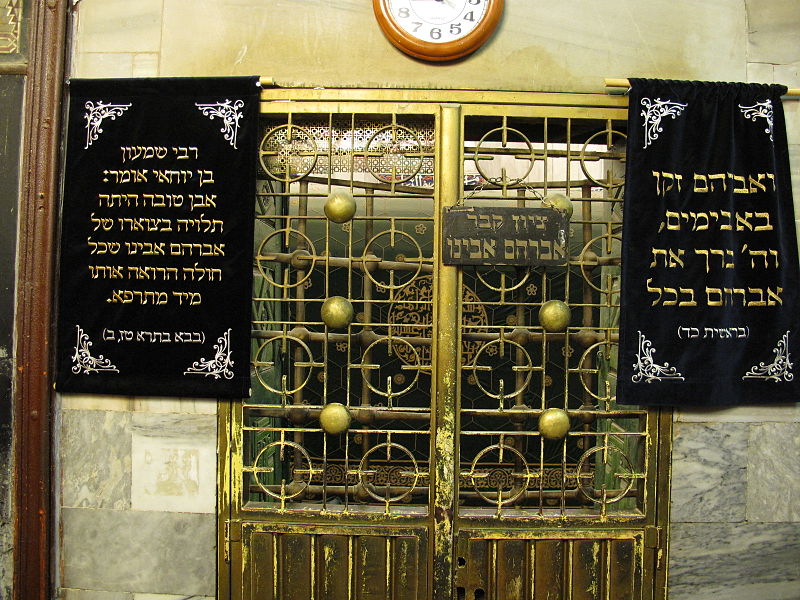
Kiryat Arba, That Is, Hebron
The land where Abraham bought the plot to bury Sarah was “Kiryat Arba – that is, Hebron” (Genesis 23:2). Hebron today is a Palestinian city under Israeli occupation and surrounded on all sides by the Jewish settlement of Kiryat Arba. Hebron is the largest city in the West Bank with around 170,000 Palestinian residents, according to the Temporary International Presence in Hebron, and is divided into H1 and H2 areas. Half of the city (H1) is controlled by the Palestinian civil authority while the other half (H2) is under Israeli military control is also home to almost 900 settlers. Israeli military control means that the Palestinian citizens of Hebron are restricted in their movement by 18 permanent Israeli military checkpoints and often additional temporary ones.
I first visited Hebron several weeks ago to meet with and support leaders of the Palestinian organization, Youth Against Settlements. On our way to the organization’s headquarters, I was stopped by Israeli soldiers who, knowing that my group was there in solidarity with Palestinians, insisted that we weren’t Jewish and therefore weren’t allowed to walk on the “Jewish” i.e. settlers-only road in Hebron. There are two types of roads in the city, one for Palestinians and one for settlers. Hebron is a city that viscerally feels charged with conflict. Crowds of soldiers and tanks roam deserted streets and ominous graffiti in Arabic, Hebrew, and English riddle building walls.
Today in Israel, there is a tradition that thousands of Jews flock to Hebron during Parshat Chayei Sarah, which this year falls in mid-November. They come to Hebron to mark their Biblical right to the land, in accordance with the Torah portion. While in the city, the Jewish crowds often damage Palestinian homes and property.
What do we do with difficult text that has difficult consequences? Do we simply ignore it, scrubbing bigotry from our history? Do we historicize it, contextualizing away the real pain felt by real women of our tradition to this day? Do we justify it, reimagining those experiences and re-writing our legacy?
Parshat Chayei Sarah is a difficult text. Reading only this, we could argue for a legacy of legal Jewish ownership over the land, as sold to Abraham by the Hittites to bury Sarah. In this way, Parshat Chayei Sarah ignores the modern reality of Palestinian existence. The Torah portion is also difficult for what it tells us about women. Parshat Chayei Sarah posits that some of the most important work done by Sarah is dying in the right place at the right time, that the power of a Jewish matriarch was in her death and silence instead of in her life.
Chayei Sarah is a Biblical story of women rendered incapable of speech. Chayei Sarah is a contemporary story of Palestinians under occupation, similarly silenced.
We can do more than to historicize this experience, explaining away the violent actions of our Jewish community, tantalized by a connection to an ancient land of our tradition at the expense of the living people around them. We can do more than forget the suffering of Hebron’s Palestinian population. As Jewish women and as feminists, we know what it means to be forgotten, to be left unwritten and unstudied. Parshat Chayei Sarah provides us with an opportunity to learn, by visiting Hebron or by reading about the reality of life there.
The views and opinions expressed in this article are the author’s own and do not necessarily reflect those of Lilith Magazine.
One comment on “Kiryat Arba, That Is, Hebron”
Comments are closed.




Crystal reportage and insight. For me the parsha it begs the question: What is the exclusivity and perpetuity of “proof text” domain legalities? Who advocates for a vanished group (ie. HIttites)? Why is machpelah, the cave, used in argument to extend and extend and extend? What is the resolution to any territorial claim dispute? I do not know the answer but legal challenges are more than good theater, they are pathway to justice. Closer to this homeland, how is Manifest Destiny understood in 2016?